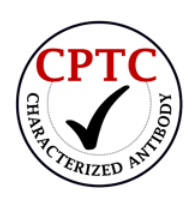CPTAC Evaluates SEER Repository Tissues as a Resource for Population-Based Cancer Proteomic Studies
Next-generation mass spectrometry (NGMS) has become a powerful tool for protein identification and quantification from prospectively collected fresh frozen or optimal cutting temperature embedded specimens. However, limitations due to supply, accessibility, and delay of clinical information and outcomes from prospectively collected specimens allow researchers to consider the use of banked specimens.

 In an effort to provide well-characterized monoclonal antibodies to the scientific community, the National Cancer Institute (NCI)
In an effort to provide well-characterized monoclonal antibodies to the scientific community, the National Cancer Institute (NCI)